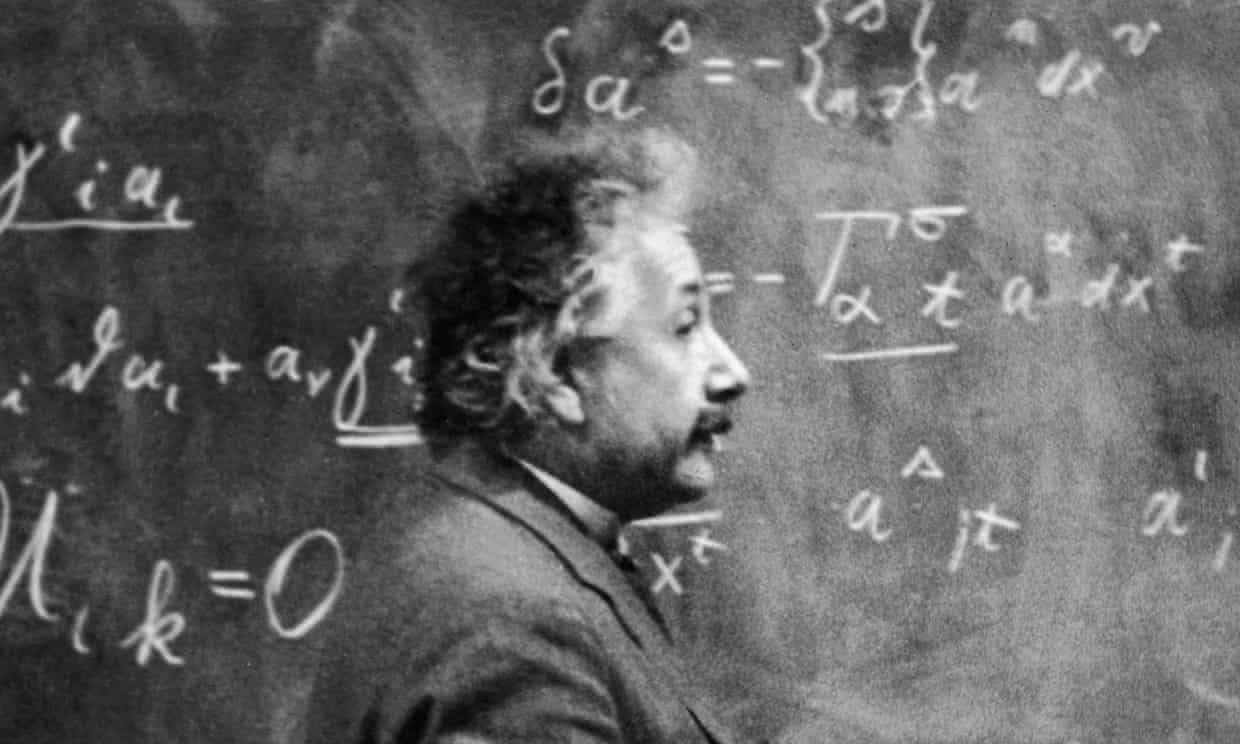Theory challenging Einstein's view on speed of li
Post# of 52108


New paper describes for first time how scientists can test controversial idea that speed of light is not a constant
The newborn universe may have glowed with light beams moving much faster than they do today, according to a theory that overturns Einstein’s century-old claim that the speed of light is a constant.
João Magueijo, of Imperial College London, and Niayesh Afshordi, of the University of Waterloo in Canada, propose that light tore along at infinite speed at the birth of the universe when the temperature of the cosmos was a staggering ten thousand trillion trillion celsius.
It is a theory Magueijo has being developing since the late 1990s, but in a paper published on Monday he and Afshordi describe for the first time how scientists can finally test the controversial idea. If right, the theory would leave a signature on the ancient radiation left over from the big bang, the so-called cosmic microwave background that cosmologists have observed with satellites.
“We can say what the fluctuations in the early universe would have looked like, and these are the fluctuations that grow to form planets, stars and galaxies,” Afshordi told the Guardian.
The speed of light in a vacuum is considered to be one of the fundamental constants of nature. Thanks to Einstein’s theory of general relativity, it was stamped in the annals of physics more than a century ago at about 1bn km/h. But while general relativity is one of the cornerstones of modern physics, scientists know that the rules of today did not hold at the birth of the universe.
Magueijo and Afshordi came up with their theory to explain why the cosmos looks much the same over vast distances. To be so uniform, light rays must have reached every corner of the cosmos, otherwise some regions would be cooler and more dense than others. But even moving at 1bn km/h, light was not travelling fast enough to spread so far and even out the universe’s temperature differences.
To overcome the conundrum, cosmologists including Stephen Hawking have proposed a theory called inflation, in which the fledgling universe underwent the briefest spell of the most tremendous expansion. According to inflation, the temperature of the cosmos evened out before it exploded to an enormous size. But there is no solid proof that inflation is right, and if so, what sparked such a massive period of expansion, and what brought it to an end.
Magueijo and Afshordi’s theory does away with inflation and replaces it with a variable speed of light. According to their calculations, the heat of universe in its first moments was so intense that light and other particles moved at infinite speed. Under these conditions, light reached the most distant pockets of the universe and made it look as uniform as we see it today. “In our theory, if you go back to the early universe, there’s a temperature when everything becomes faster. The speed of light goes to infinity and propagates much faster than gravity,” Afshordi said. “It’s a phase transition in the same way that water turns into steam.”
Scientists could soon find out whether light really did outpace gravity in the early universe. The theory predicts a clear pattern in the density variations of the early universe, a feature measured by what is called the “spectral index”. Writing in the journal Physical Review, the scientists predict a very precise spectral index of 0.96478, which is close to the latest, though somewhat rough, measurement of 0.968.
Science can never prove the theory right. But Afshordi said that if measurements over the next five years shifted the spectral index away from their prediction, it would rule out their own theory. “If we are right then inflation is wrong. But the problem with inflation is that you can always fine tune it to fit anything you want,” he said.
David Marsh, of the Centre for Theoretical Cosmology at Cambridge University, is not giving up on inflation yet. “The predictions of inflation developed by Stephen Hawking and others more than 30 years ago have been tested by cosmological observations and faced those tests remarkably well. Many scientists regard inflation as a simple and elegant explanation of the origin of galaxies in the universe,” he said.
And while other theories might also look promising, Marsh said there were elements of Afshordi and Magueijo’s that were not well understood. “It remains to be seen how robust the predictions are when all the theoretical issues have been addressed,” he said.
 (0)
(0) (0)
(0)